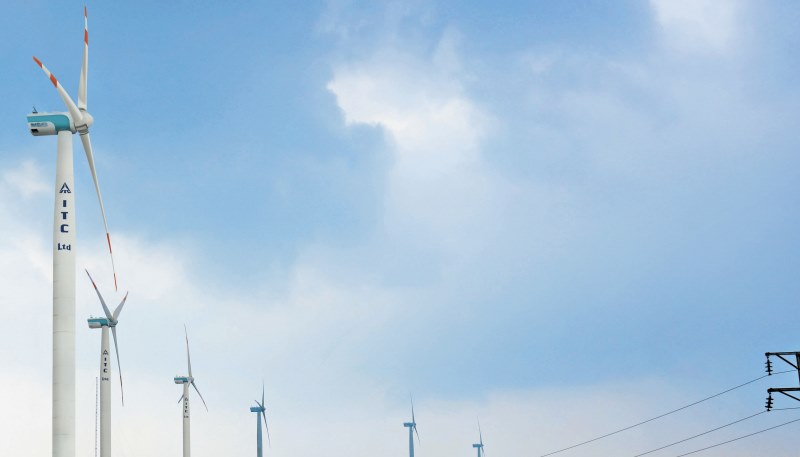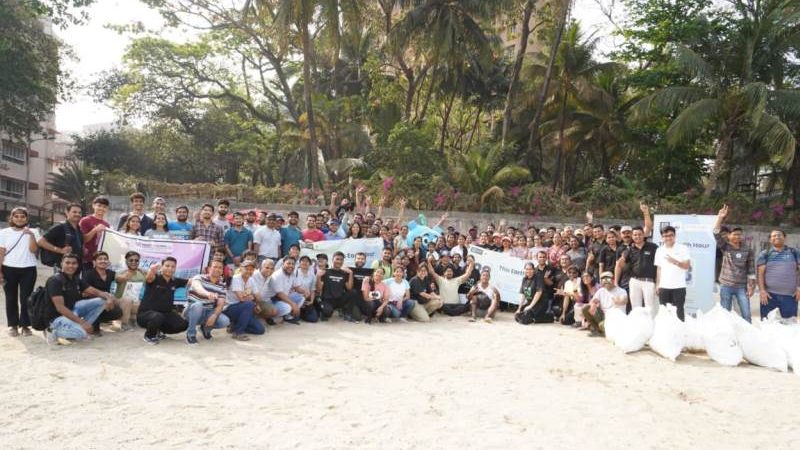ITC to Go Fully Renewable by 2030

ITC Limited has set itself the target to meet 100% of purchased grid electricity requirements from renewable sources by 2030. ITC aims to meet 100% of electrical energy needs from renewable sources by 2030 as a part of its Sustainability 2.0 Vision. Already, more than 40% of ITC’s electrical energy consumption is met through renewable sources like wind, solar and biomass.
There are offsite solar projects in Bihar, Uttar Pradesh, Karnataka, Haryana & Tamil Nadu and onsite solar projects in West Bengal and Tamil Nadu which are under execution to meet this target. ITC aims to achieve a 50% reduction in specific emission and 30% reduction in specific energy consumption to mitigate climate change. In line with its philosophy of Responsible Competitiveness, ITC has adopted a low carbon growth strategy. As a part of its Sustainability 2.0 Vision, ITC is planning to invest further in strengthening its renewable energy portfolio in order to contribute meaningfully to the fight against climate change.
The company has already made significant investments in renewable energy assets (Wind and Solar projects combined). This will improve Renewable Energy share of company by additional 6% from current levels. The current renewables portfolio of ITC consists of 138 MW of wind power plants and 14 MW of Solar plants with ~53MW of additional solar capacity under execution. Projects are also underway in the area of other sources of renewable energy like solar boiler or biomass boilers.
At present, ITC uses renewable energy across 20 factories, 9 hotels and 6 office buildings spanning states such as Telengana, Tamil Nadu, Karnataka, Maharashtra, Andhra Pradesh, Rajasthan, Uttar Pradesh, Delhi, Bihar, Haryana, West Bengal and Punjab. In 2018, ITC became the first private sector entity to wheel renewable energy across states through Inter-State Open Access mechanism. Currently, the 46 MW Wind power plant in Andhra Pradesh owned by ITC supplies power to over 15 ITC establishments in 8 states. This has led to a higher Renewable Energy utilization for the company.
Besides investing in new renewable energy assets, ITC also aims to achieve a 50% reduction in specific emission and 30% reduction in specific energy consumption by 2030 over a 2014-15 baseline. Such efforts in decarbonizing energy consumption through low-carbon energy solutions will be met through large-scale digitalisation and R&D initiatives, cross-sectoral collaborations and partnerships.
Talking about company’s resolve to mitigate climate change risks, Mr. Sanjiv Rangrass, Group Head–R&D, Sustainability and Projects, ITC Limited said, “As a sustainability pioneer and an exemplar in environment stewardship, ITC has been emphasizing on the need to decarbonize energy consumption through green energy solutions in order to mitigate climate change risks. To pursue continuous improvement in energy and emission related performance, we have taken up specific energy and Greenhouse Gas emission reduction targets.”
ITC, as part of its initiative to channelize knowledge-sharing and collaboration between different teams with valuable and varied experiences in green energy projects, had also constituted a Centre of Excellence for Renewable Energy (CoE RE) in 2014. The CoE RE currently consists of over 100 members from different divisions and units actively taking part in initiatives to drive the green objectives for the company.



